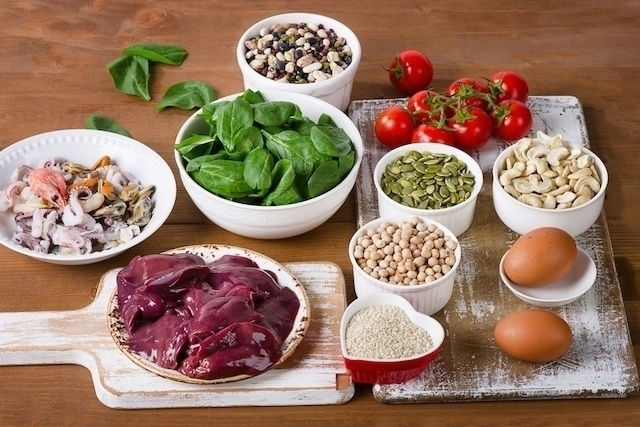Iron absorption can be enhanced by eating foods that are high in vitamin C (like oranges, cashews, guava and cherries) when eating iron-rich foods. You should also avoid taking antacids frequently.
It is important to include iron-rich foods in your daily diet. These can be from both animal and plant-based food sources.
Iron is a mineral that is necessary for the production of hemoglobin, which is a component of red blood cells. Iron and hemoglobin are essential for the transport of oxygen from the lungs to the rest of the body, and low levels of both can lead to anemia.

How to increase iron absorption
Some ways to enhance iron absorption include:
1. Eating vitamin C foods
Eating foods that are rich in vitamin C with your meals can help to increase the absorption of iron from foods. Some examples include cashews, acerola, oranges, lemons, broccoli and peppers.
Also recommended: Vitamin C Foods: 21 Foods, Supplements & How to Consume tuasaude.com/en/vitamin-c-foodsVitamin C is a great addition for iron-rich foods, as it favors the bioavailability of heme iron, which is a type of iron present in plant-based food sources.
When taking iron supplements you should try to take them along with a vitamin C food, as this can also optimize absorption.
2. Maintaining an iron-rich diet
To optimize iron absorption, it is important to maintain a diet that is rich in this mineral. Foods that you can try to incorporate into your diet frequently include red meat, fish, egg yolks, beef liver, pumpkin and sunflower seeds. Check out other iron-rich foods that you can consume.
High-iron foods should be consumed with all main meals.
Also recommended: 17 Fruits with Iron (& How to Promote Absorption) tuasaude.com/en/fruits-high-in-iron3. Preventing foods that interfere with iron absorption
To increase iron absorption, you should also avoid excessively eating foods that hinder the absorption of this nutrient in the gut, such as milk, yogurt and cheese. These foods should be avoided during your main meals, and incorporated into your snack routine instead.
You should also avoid alcohol, soft drinks, coffee, black tea, green tea, yerba mate and chocolate with your iron-rich foods.
4. Consuming probiotics
Consuming probiotics can also help to increase iron absorption, as probiotics help to keep intestinal flora balanced. Having balanced gut flora can promote optimal nutrient and iron absorption.
Therefore, it is important to consume probiotic foods like kefir, natural yogurt and fermented milk on a daily basis. Read more about probiotic foods that you can eat and the benefits of including these foods in your diet.
Taking probiotic supplements can also be advised in some cases. Speak to your doctor a registered dietitian about taking probiotic supplements before starting them on your own.
Also recommended: Probiotics: 12 Health Benefits, Foods, Supplements (& How to Take) tuasaude.com/en/benefits-of-probiotics5. Avoiding antacids
To help increase iron absorption, it is important to avoid using antacid medications.
Antacids like magnesium hydroxide, calcium carbonate and sodium bicarbonate, neutralize stomach acidity, which will reduce the quantity of iron absorbed from food and supplements.






























